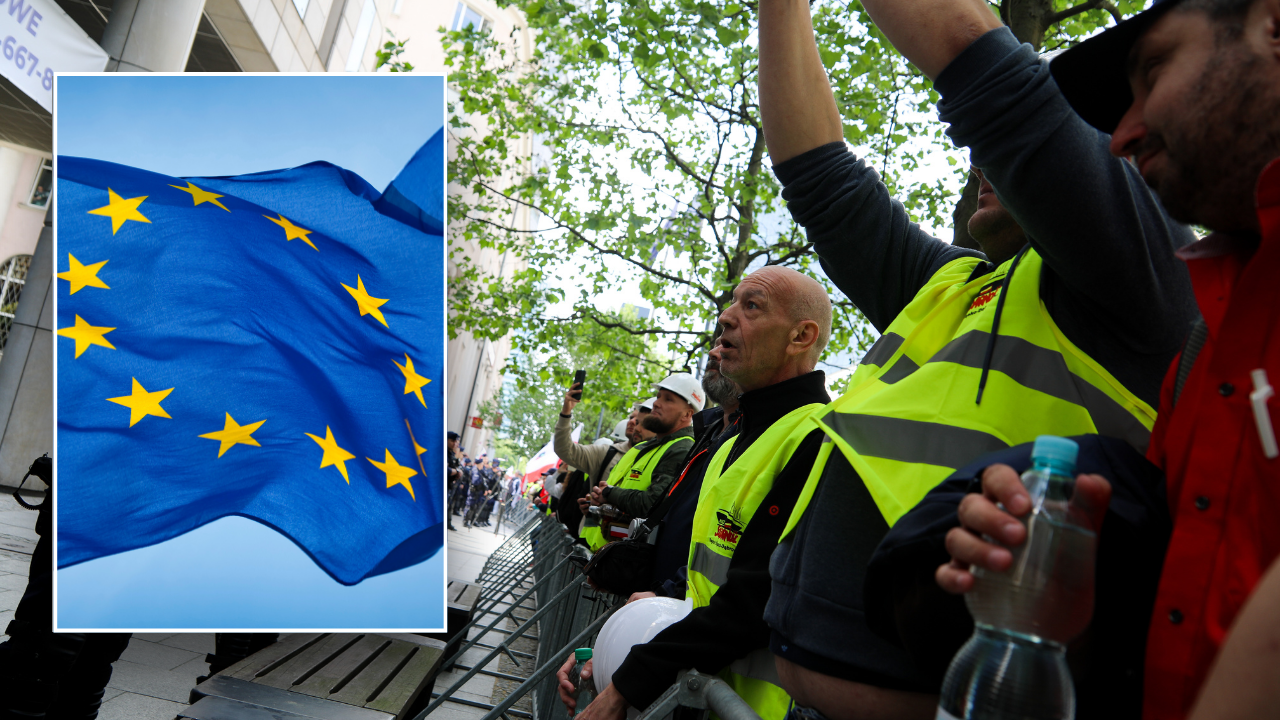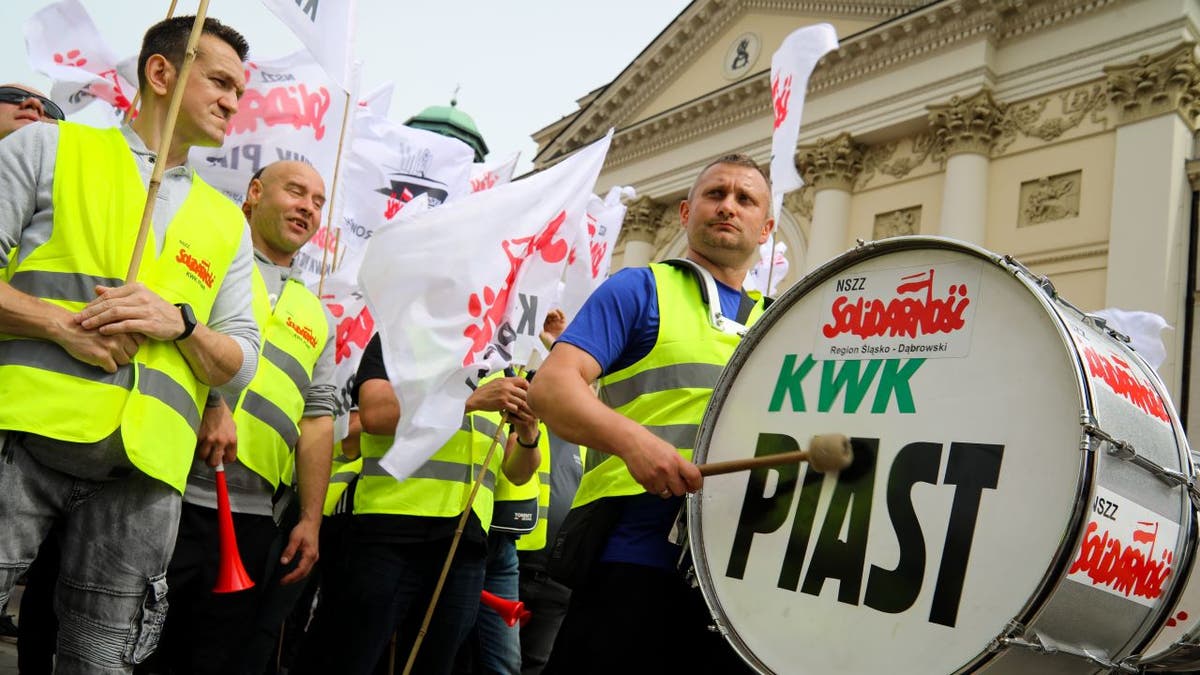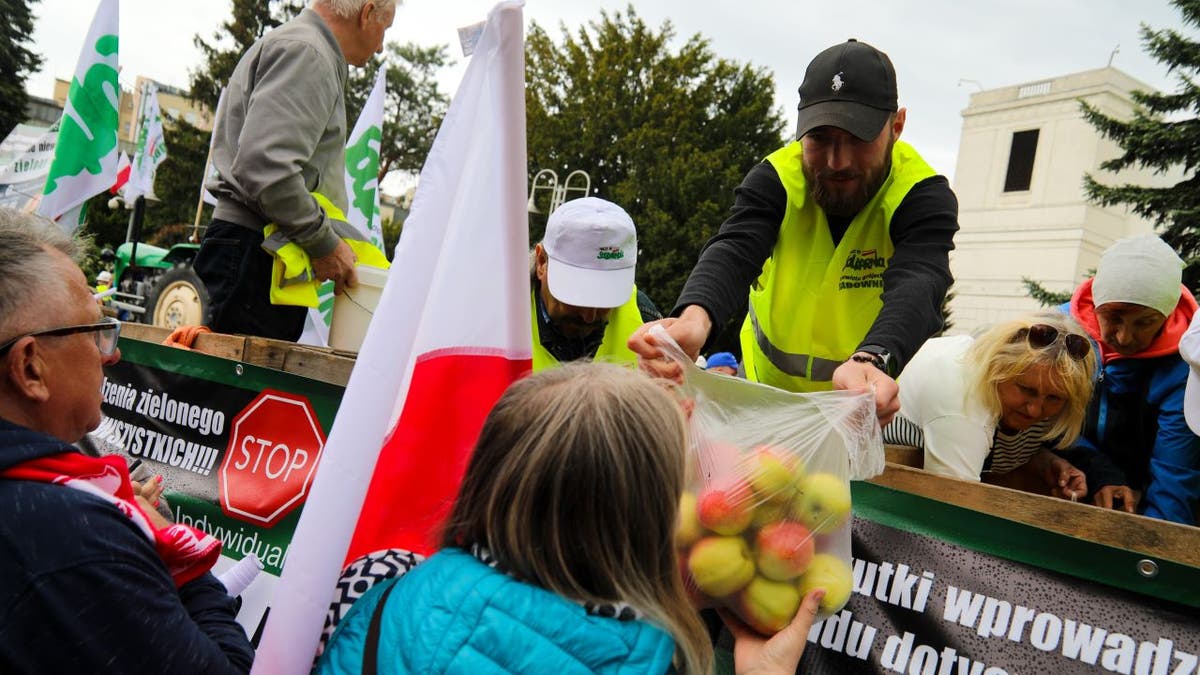INTERNACIONAL
European farmers’ discontent with EU climate policies may sway elections: expert

European farmers’ frustration with climate policies touted by the European Union (EU) could sway the 2024 European Parliament election, according to an expert.
The election began on June 6, and ends on Sunday. In a recent NPR interview, an agricultural policy specialist explained that the recent protests by European farmers could prove influential over the weekend.
Alan Matthews, a retired professor of European agricultural policy at Trinity College in Dublin, said that the farmers’ discontent stems from the EU expecting them to be «part ecologist, part nature conservationist,» among other things.
«They need to know how they’re impacting greenhouse gas emissions. So there’s a whole range of additional obligations, requirements, if you like, that we’re asking farmers to make,» he acknowledged.
SPANISH AND FRENCH FARMERS FORM BORDER BLOCKADE BEFORE EU ELECTION
The frustrations felt by European farmers over climate policies could prove influential in the ongoing European Parliament election. (iStock / Getty Images)
«We now have farmer protests instead of youth protests prior to the European elections,» Matthews added. «I think that the protests in themselves are likely to have a similar impact [as the youth protests did].»
In an interview with NPR, German farmer Anthony Lee accused the European Green Party of «trying to get rid of small farming businesses.»
«They tell us the opposite,» Lee said. «The first farms that go bankrupt are small farms because they can’t cope with this system.»
Lee, who is running in the current election, also accused European politicians of exerting too much control over how farmers conduct their own business. Part of that comes from how bureaucrats monitor farms on a regular basis.
POLISH FARMERS MARCH IN WARSAW OPPOSING EUROPEAN UNION CLIMATE POLICIES

Farmers protest in front of the Parliament of the Republic of Poland in Warsaw, Poland, May 10, 2024. (Klaudia Radecka/NurPhoto via Getty Images)
«Every three days, satellites fly over our property, our fields,» Lee told NPR. «And then every farmer has to download an app, and we get push messages that say: ‘On your field on such and such a day, something’s not right. Take a picture and send us this picture.’ That’s how crazy it’s gotten now.»
«If the satellite picture shows you or shows to the government that something is not correct, so if you say we grow wheat and [instead] you grow corn, it would automatically send them a message that there’s something wrong,» he described. «Or if you bring out manure [at] a certain time which you’re not allowed, or if you plow your field, I mean, they are honestly talking about not plowing.»
Last month, tens of thousands of Polish farmers marched in Warsaw against the EU’s climate policies.
«We are protesting because we don’t want to become slaves on our own land,» dairy farmer Grazyna Gasowska said at the time. «According to the Green Deal we are supposed to grow what they tell us to, when they tell us to.»

Farmers protest under the slogan «Down with the Green Deal» in front of the Parliament of the Republic of Poland in Warsaw, Poland, May 10, 2024. (Klaudia Radecka/NurPhoto via Getty Images)
CLICK HERE TO GET THE FOX NEWS APP
«All those diversification requirements are very difficult for the farmers,» she added.
INTERNACIONAL
Israel y Hamás confirman que van a retomar negociaciones en Doha para el acuerdo de paz en Gaza

La liberación de los rehenes que mantiene Hamás, el punto de la discordia
-
ECONOMIA2 días ago
En el campo, vaticinan que 2025 será un año de quebrantos y Javier Milei ya avisa que no habrá salvatajes
-
POLITICA2 días ago
Escándalo en el Senado: UCR, PRO y libertarios acuerdan con Villarruel congelar los sueldos, pero falta el apoyo K
-
SOCIEDAD2 días ago
«Rutas Nacionales en Crisis: La Falta de Financiamiento y el Aumento de Accidentes Mortales»
-
ECONOMIA2 días ago
El Gobierno llevaría el trámite de la privatización de Aerolíneas Argentinas a sesiones extraordinarias
-
INTERNACIONAL1 día ago
Masacre en Nueva Orleans: una camioneta atropelló a una multitud en plenos festejos de Año Nuevo y hay 10 muertos
-
POLITICA23 horas ago
Villarruel no prorrogó el congelamiento y ya rige el aumento para los senadores: $ 9,5 millones por mes































